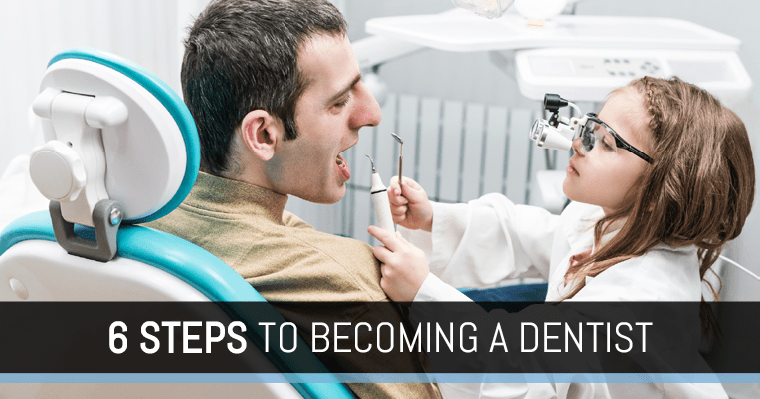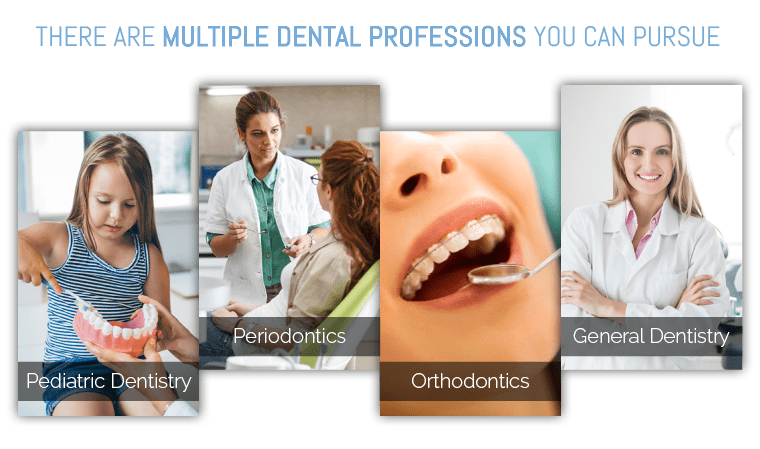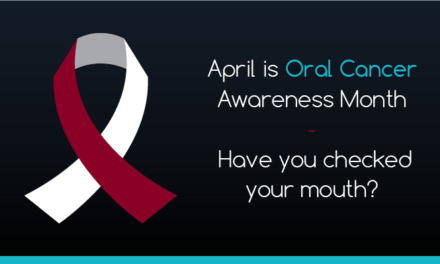
So you want to be a dentist – that’s great! Dentists, after all, are considered among the top 100 best jobs across the country for numerous reasons:
- They provide a service to others by maintaining and improving oral health.
- They enjoy a balanced work-family lifestyle.
- They receive a comfortable income.
- It’s a respectable career.
- Last (but not least), dentistry empowers your patients, increasing their self-confidence.
These don’t even scratch the surface of how rewarding a dental career can be, but becoming a dentist does require years of schooling and testing. So what’s involved in becoming a dentist?
Six steps you need to take to become a dentist
Step 1: Get your bachelor’s degree
You must graduate from a four-year university before applying to dental school. While not required, it’s recommended to pursue a major in chemistry or biology to help prepare for dental school and your Dental Admission Test.
There are even colleges who offer pre-dental programs. It may be worthwhile to pursue those programs because they prepare you for the Dental Admission Test and ensure you meet all requirements to be accepted into dental school.
Step 2: Pass the Dental Admission Test
To get into dental school, you must complete and pass the Dental Admission Test. This rigorous test is a major component of your dental school application. It consists of 280 questions covering the natural sciences (chemistry, physics, biology, etc.).
Step 3: Attend and graduate from dental school
Once you’re accepted into dental school, you’ll spend the next four years receiving the training and education you need to become a dentist. It can include coursework and clinical rotations. Depending on where you go, make sure you find a program accredited by the Commission on Dental Accreditation to ensure you can obtain your dental license after graduation.

Step 4: Figure out if you want to specialize
You don’t have to focus on becoming a general dentist. There are many areas of dentistry you can focus on, including orthodontics, periodontics, endodontics, oral surgery, pediatric dentistry, and many others.
During your time in dental school, if you find yourself wanting to specialize in a specific area, you may need to undergo more schooling (ranging from 2-6 years) to become a specialized dental expert. The American Dental Association recognizes nine different specialty areas you can choose from:
- Dental Public Health
- Endodontics
- Oral and Maxillofacial Pathology
- Oral and Maxillofacial Radiology
- Pediatric Dentistry
- Oral and Maxillofacial Surgery
- Periodontics
- Orthodontics and Dentofacial Orthopedics
- Prosthodontics
Step 5: Get your dental license
You graduated from dental school (hooray!). Now you must jump over that final hurdle to officially become a dentist. All dental students must pass a written and clinical exam to obtain a dental license. Topics could range from biomedical sciences, dental anatomy, and ethics to clinical subjects.
Step 6: Start your dream job!
You did it! After years of schooling and tests, you can finally start helping the public achieve optimum oral health. No matter where you start on your dental journey, just know you’re providing a wonderful service that constantly changes to improve people’s lives.
Would you like to know how your dentist became a dentist? Just ask us at your next appointment. Schedule your biannual checkup today.
The content on this blog is not intended to be a substitute for professional medical advice, diagnosis, or treatment. Always seek the advice of qualified health providers with questions you may have regarding medical conditions.



